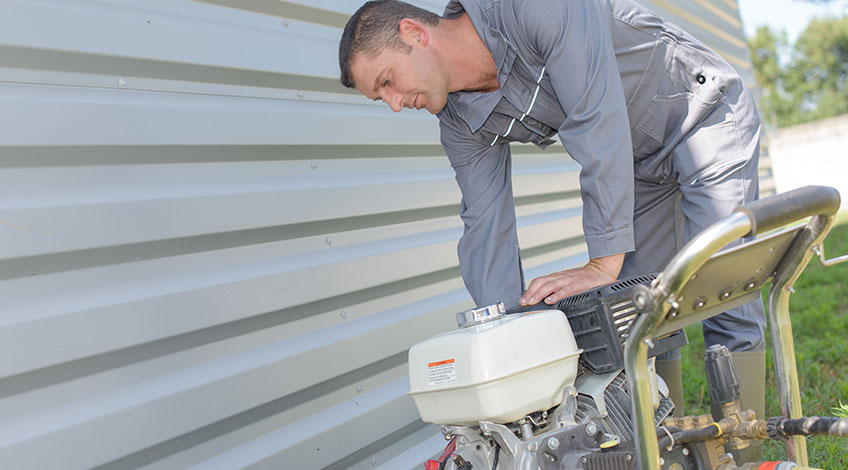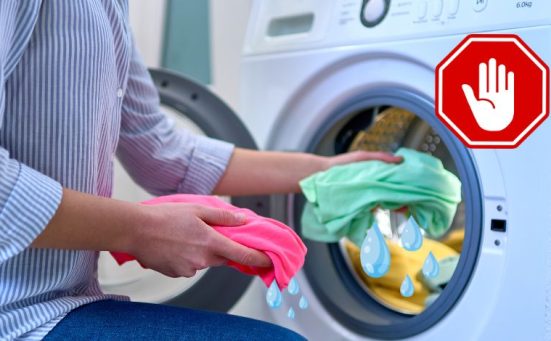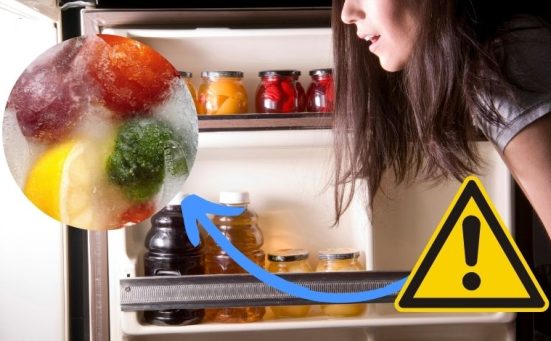
Pressure Washer Troubleshooting Guide
If you own a pressure washer, and you’re all geared up to use it and for some reason, it has a problem, you can do one of two things. Reach for the user manual, or search online. Seeing as you’re here you obviously searched online, and it’s just as well you did.
Because here you’ll find all of the common faults that affect pressure washers along with the easiest cures. From low pressure, motor cut-outs, water leaks, oil leaks, and much more.
So let’s jump straight into the most common pressure washer problems, and how to fix them.
Common Pressure Washer Faults And Fixes
We’ve tried to make this as easy to follow as possible so you can get it fixed and get back on with your pressure washing in as short amount of time as possible.
| Problem | Probable cause | Cure |
|---|---|---|
| Low water pressure | Not enough water supply to the pressure washer | Remove any kinks from the hose, turn the tap on fully, check the hose for blockages, make sure hose diameter is adequate. Check nozzle is correct for use. |
| Low water pressure | Blocked inlet filter | Remove hose, clear blockage and reconnect the hose. |
| No Water pressure | Faulty unloader valve | Check for damage, check seals spring, check calibration. Repair or replace as necessary |
| No water pressure | Faulty pump | Remove pump replace or repair |
| Pulsating water pressure | Air blockage | Turn off the machine press trigger as water runs through it will remove any air. |
| Pulsating water pressure | Faulty pump | Repair or replace the pump |
| Pulsating water pressure | Blocked nozzle | Use the tool provided to clean the nozzle and flush with water |
| Pulsating water pressure | Unloader valve calibrated incorrectly | Check the user manual for correct calibration and recalibrate |
| Pressure drops as soon as you start using. | Blocked nozzle | Clean with the tool provided |
| Pressure drops as soon as you start using. | Unloader valve Problem | Check unloader valve and repair or replace as necessary |
| Pressure washer working but not cleaning | Wrong nozzle | Change to a higher pressure nozzle |
| Water pump leaking | Thermal valve activated | Wait 5 minutes and try again |
| Water pump leaking | Bolts loose on the pump | Retighten the bolts and make sure casing is fitted together correctly |
| Water pump leaking | Damaged seals, pump cracked | Replace pump (contact manufacturer if still on warranty) |
| Water leaking from the garden hose | Bad connections | Reconnect properly or replace washers. |
| Water leaking from the wand | Worn washer | Replace the washer |
| Detergent Injector not working | Wrong nozzle | Use the black detergent nozzle |
| Detergent Injector not working | Soap inlet filter blocked | Flush with water |
| Detergent Injector not working | Detergent too thick | Dilute with more water |
| Machine louder than normal | Blocked water intake | Check and clean |
| Machine louder than normal | Oil level low in the pump | Check and add oil (if possible) if not contact the manufacturer |
| Machine louder than normal(Petrol models) | Low oil level in the engine | Check and add oil as necessary |
| Oil leaking from the water pump | Loose bolts | Retighten the bolts |
| Oil leaking from the water pump | Damage to the internal parts of the pump | Check your warranty and contact the manufacturer or repair and replace. |
Common Faults With Electric-Powered Pressure Washers
The following problems only affect electrical pressure washers.
| Problem | Probable cause | Cure |
|---|---|---|
| Motor cuts out | Low voltage | Try moving to a different plug socket and removing any extension cable |
| The machine doesn’t start | Not plugged in | Plug it in |
| The machine doesn’t start | Socket switch is off | Turn the power supply on |
| The machine doesn’t start | The power supply is faulty | Check socket, cable, plug, fuse and replace repair or move to a different socket |
| The machine doesn’t start | Faulty motor | Contact the manufacturer and return under guarantee |
Common Faults With Petrol-Powered Pressure Washers
The following problems only affect petrol pressure washers.
| Problem | Probable cause | Cure |
|---|---|---|
| Engine won’t start | No fuel | Fill with the correct fuel |
| Engine won’t start | Air block | Use correct start-up procedure to release air blockage |
| Engine won’t start | Choke and/or throttle needs adjusting | Adjust choke and throttle |
| Engine won’t start | Faulty spark plug connection | Check and reconnect the spark plug wire |
| Engine won’t start | Faulty spark plug | Remove, inspect, clean or replace. |
| Engine cuts out while in use | Oil level too low | Check oil level and refill as necessary |
| Engine cuts out while in use | Clogged air filter | Remove the air filter, clean or renew and replace. |
| Not enough power from the engine | Clogged air filter | Remove the air filter, clean or renew and replace. |
| Not enough power from the engine | Engine running too slow (or too fast) | Check the handbook for specs and adjust engine speed |
| Oil leaking from the engine | Worn seals | Check the warranty, if you’re not covered replace the seals. |
| Milky looking oil in the engine | Water entering through worn or damaged pistons. | Contact manufacturer. |
That’s all the common faults you’re likely to come up with while operating (or trying to operate) your pressure washer. You’ll see from the chart above that electric-powered pressure washers have fewer faults to petrol-powered models. That’s not because they are better quality machines, it’s because with a motor replacing the engine, there are fewer working parts to go wrong.
That said, you can’t really repair an electric motor without being an electrician whereas you don’t have to be a mechanic to tinker with a petrol engine (within reason). Also before messing with any parts, or dismantling anything, always check your warranty first. Because once you dismantle anything you run the risk of voiding the warranty.
What’s Better Electric Or Petrol-Powered Pressure washers?
There are pros and cons to each type and it really is down to personal preference. But as a rough guide, here’s a quick comparison chart.
Pros And Cons For Electric-Powered Pressure Washers
| Pros | Cons |
|---|---|
| Light-weight | Lower power range |
| Less maintenance | Limited lifespan |
| Quieter | Ties by a cable (less mobility) |
| Easy to operate | Coldwater only |
| A larger choice of attachments | |
| Cheaper purchase price |
Pros And Cons For Petrol-Powered Pressure Washers
| Pros | Cons |
|---|---|
| More powerful PSi | Heavier to move |
| No cables to hold you back | Cost more to purchase |
| Considerably longer lifespan | High maintenance (fuel, oil, filters, spark plug, repairs) |
| Hot water cleaning power | Louder |
| More accessibility for repairs | Harder to start |
| Limited range of accessories |
For much more information about gas vs electric pressure washers follow this link
Also, follow us on Pinterest ...



